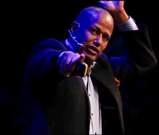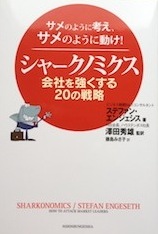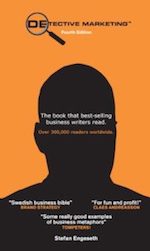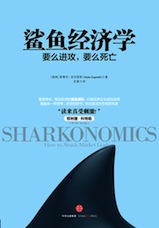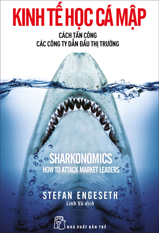The Dancing Marketer
From Folkuniversitetet’s monthly magazine, November 2001. (Folkuniversitetet is a Swedish national university extension system closely affiliated with the country’s five main universities.) Portrait
The music blasts out of the speakers and everyone is urged to start disco-dancing. Yet, this is neither a party or an aerobics work-out. It is a lecture by Stefan Engeseth on innovative thinking in marketing. The place is Folkuniversitetet in Stockholm and the audience, at first hesitant, eventually joins in.
“Creativity flows from the body,” says Stefan Engeseth, whose unusual career has led him from dancer to “marketer of the year”. His book Detective Marketing came out last year in Sweden and is now available in an international English-language edition.
Stefan is full of ideas and has been acclaimed for both his creativity and his marketing theories. He is living proof that you can succeed by going your own unconventional way, even in the world of education.
Stefan knew from an early age that he wanted to become a dancer. In school, with its long periods of sitting still, he always longed after motion. He started taking dance courses at Folkuniversitetet in Malmö, Sweden, went on to the Ballet Academy in Stockholm and was on his way to a career in New York.
Stefan has held many lectures in public schools and has seen himself in may of the students.
“Dance is very liberating when you are in your teens. At that age, you have no direct relationship to your body, your sense of movement and joy. My real motivation to study didn’t come until I started dancing.”
He also became interested in memory and how a dancer learns movements and develops coordination. Today, there is scientific evidence that confirms the importance of movement not only for the body and good health, but also for the brain and learning ability. Stefan describes the feeling and insight dancing has given him.
“It’s like living in a one-bedroom apartment, suddenly discovering that there are four new rooms and then going on to find even more rooms.”
Stefan devoted himself to dancing 100% and looking back he realizes that he trained too hard. He walked around all day on a perpetual natural high. Everything centered around dance. One day, he started going to the library and reading books on marketing. He even went as far as to personally contact the authors to discuss their work. He explains his choice of marketing by describing the tremendous creativity that is created when you dance. When you close off that channel anxiety builds up. Stefan was looking for a career that would give him an outlet for that creativity.
“I think we lose much of the genius of childhood when we enter the adult world. Dance puts you in touch with the inner child,” Stefan explains.
This is why one of his mentors, Erik, is only three years old. A mentor should preferably be unlike oneself so that he or she can fill in the gaps in your own development, explains Engeseth. This always opens new possibilities.
Breaking old patterns and moving freely, are recurrent themes in most of the things that interest Stefan, regardless of whether it’s dancing or marketing.
“It’s easy to get comfortable and seek out relationships that confirm one’s own qualities, but staying in that place is probably a bit boring in the long run.”
“You must venture into unknown territory. This is even reflected in one’s choice of education. I’ve learned so much from finding myself in unexpected situations. When different backgrounds meet, new things are often created. An interesting experiment in this sort of thinking would be for Folkuniversitetet to send everyone who enrolled to the wrong classes.”
“In some ways, this would give students more education that they bargained for. When things are predictable they stagnate.”
His experience shows that if you ask someone what he or she wants you will get an answer, but what they need is often a whole different thing altogether.
Stefan is a great believer in a “meeting of incompetence”. An advertising agency in Malmö often invites a passerby from the street to take part in creative meetings.
Chance meetings are also a theme in Detective Marketing, that has become a global trademark. The name is inspired by interviews with private detectives who are also interested in finding out as much as possible about people and what interests them, a way of working that is applicable to education.
“Consumers leave footprints,” says Stefan, “Recognizing them is the key to predicting emerging trends and shaping them.”
If you are interested in reading Stefan’s book, you can download a condensed free version from his website (www.detectivemarketing.com). The site is also the best forum to ask him questions about his marketing theories.
By Lena McIvor
